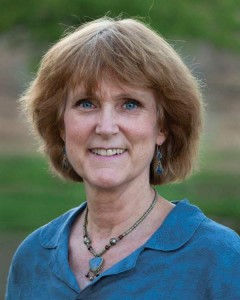About
Peggy Kelsey received degrees in social work and education before undertaking extensive world travels. A professional photographer and resident of the Austin area since 1980, Peggy was privileged to meet with a delegation of 14 Afghan women who passed through Austin, Texas in the fall of 2002. The strength, humor and resiliency of the women she met was contrary to the media image (at the time) of Afghan women as helpless victims. This dichotomy inspired Peggy to create the Afghan Women’s project and in August and September of 2003, Peggy spent 6 weeks in Afghanistan and returned with portraits and stories of 40 Afghan women.
She now travels around the country sharing her exhibit and slide presentations. In April of ‘07, she traveled to Jordan to do a similar project with Iraqi refugee women and in the spring of 2010 returned to Afghanistan for two and a half months. You can read about her book, Gathering Strength: Conversations with Afghan Women here.
Artist Statement:
When I left on my last trip to Afghanistan, quite up-to-date on the news out of there, I was feeling angry, hopeless and discouraged about the Afghan situation. That quickly dissipated once I was on the ground and as I interviewed more and more inspiring women. I found things that surprised me such as the Afghan Mobile Mini Children’s Circus, Skatestan and women drivers as well as rural schools and clinics. I witnessed first hand the thirst and sacrifice for education and the many, many educational opportunities offered by private Afghan schools as well as aid organizations in addition to the government schools. Additionally, a plethora of different business training courses showed me that this country has much of what is needed to succeed as a functional society. When I talked with the youth, I saw that many of them had dedicated themselves to the uncorrupted rebuilding of their country and to the aid of those less well off than themselves.
This is a perspective that seldom makes western mainstream news. Many important issues surrounding that country have been conflated to a simplistic view of Afghan problems which therefore lead to simplistic solutions based on a western perspective. I believe that a more nuanced view of Afghanistan is transferable to other issues in other places. I believe that getting to know real people (by meeting them in person or vicariously) in one “foreign” country conveys a broader understanding of people everywhere and the issues they face. I believe that awareness of and interest in people “different from us” leads us to see our common humanity and enriches our lives.
My tool for doing this is photography. I was surprised to see that sometimes the impression I got while conducting the interviews changed when I reviewed the individual images and re-read the transcription of the woman’s words. I became able to slow down and focus deeply on the woman in front of me, seeing things I hadn‘t noticed in real time.
If I have any agenda or message it is this: The situation for Afghans and specifically Afghan women may deteriorate during the coming years. But we must, like the Afghans already do, take a long term view. What can be done now to secure the futures of the next generation for their children? There is one answer that doesn’t depend on international politics and that is education, specifically rural education. Currently, there are several excellent programs such as Greg Mortenson’s schools and the Afghan Institute of Learning which are working to this end. Supplementing their efforts are also community-based schools where teacher candidates are taken from remote villages for teacher training and then sent back to teach in public spaces (like mosques) in their villages. These programs are transforming society. What is needed is support and patience.
